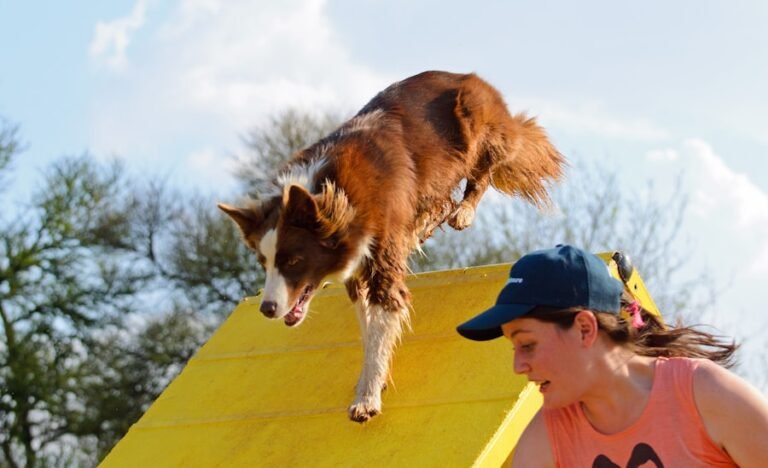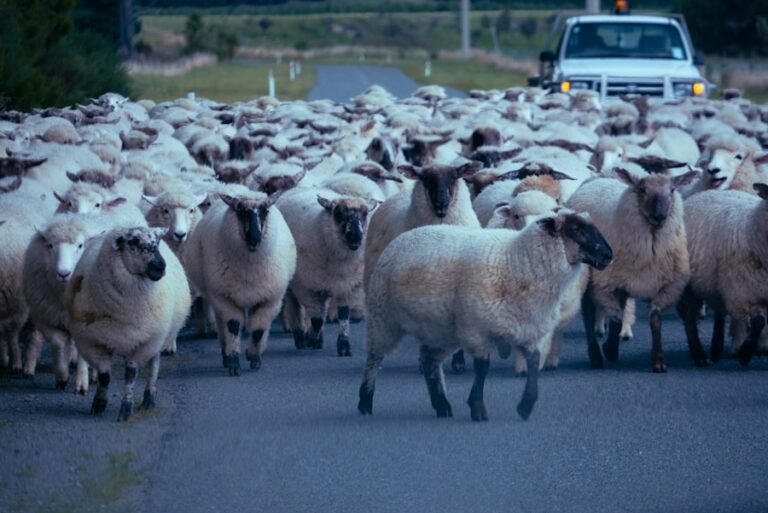From Puppies to Pedigrees: The Economics of Border Collie Breeding
Border Collies have become increasingly popular in recent years, and it’s not hard to see why. These intelligent and energetic dogs have a long history of working alongside shepherds, herding livestock with their natural instincts and incredible agility. Originally bred in the border region between England and Scotland, Border Collies have since gained recognition for their exceptional intelligence and versatility.
One reason for the growing popularity of Border Collies is their reputation as highly trainable and obedient dogs. They excel in various dog sports and activities, such as obedience trials, agility competitions, and even flyball. Their intelligence and eagerness to please make them a favorite among dog trainers and enthusiasts.
Additionally, Border Collies are known for their loyalty and affection towards their owners. They form strong bonds with their families and are often described as being highly devoted. This makes them excellent family pets, as they are not only intelligent but also loving and protective.
The Basics of Border Collie Breeding: Understanding Genetics
Breeding Border Collies requires a deep understanding of genetics. It is essential to have knowledge of dominant and recessive genes, as well as how they can be passed down from parent to offspring. This understanding helps breeders make informed decisions about which dogs to breed together in order to produce desired traits in their puppies.
DNA testing has become an invaluable tool in breeding Border Collies. It allows breeders to identify potential genetic health issues that may be present in their breeding stock. By testing for specific genetic markers, breeders can make informed decisions about which dogs to breed together in order to minimize the risk of passing on genetic diseases or disorders.
The Cost of Breeding: From Health Tests to Stud Fees
Breeding Border Collies can be an expensive endeavor. There are several costs involved, starting with health tests for the breeding stock. These tests ensure that the dogs are free from genetic diseases and disorders that could be passed on to their offspring. Health tests can include hip and elbow evaluations, eye examinations, and DNA testing for specific genetic markers.
In addition to health tests, breeders must also consider the cost of stud fees. If they choose to breed their female dog with a male from another breeder, they will need to pay a fee for the use of the stud dog. Stud fees can vary widely depending on the reputation and quality of the male dog.
The Economics of Puppy Sales: Pricing Strategies and Profit Margins
The price of Border Collie puppies can vary greatly depending on several factors. Breeders take into consideration the quality of the parents, their lineage, and any titles or achievements they may have. Puppies from champion bloodlines or parents with exceptional working abilities often command higher prices.
Other factors that can affect puppy prices include the demand for Border Collies in a particular area and the breeder’s reputation. Breeders with a long history of producing high-quality puppies may be able to charge more for their puppies.
Pricing strategies for breeders can vary. Some breeders may choose to set a fixed price for all their puppies, while others may adjust prices based on individual traits or qualities. It is important for breeders to consider their costs and profit margins when setting prices, as well as the current market demand.
The Role of Pedigree: How Lineage Affects Price and Demand
The pedigree of a Border Collie plays a significant role in determining its price and demand. A pedigree is a record of a dog’s lineage, including information about its parents, grandparents, and sometimes even further back. Puppies with well-known and respected bloodlines often command higher prices due to the perceived quality and predictability of their traits.
The demand for puppies from certain bloodlines can also be influenced by trends within the dog show or working dog communities. If a particular bloodline is producing successful show dogs or working dogs, there may be increased demand for puppies from that line.
The Importance of Socialization: The Impact on Puppy Development and Sales
Socialization is a crucial aspect of puppy development, and it also plays a significant role in the sales of Border Collie puppies. Early socialization helps puppies develop into well-rounded and confident dogs. It exposes them to various people, animals, and environments, helping them become comfortable and adaptable in different situations.
Well-socialized puppies are more likely to be sought after by potential buyers. Families looking for a new pet want a puppy that is friendly, confident, and easy to train. Breeders who prioritize socialization and provide their puppies with positive experiences from an early age are more likely to have successful sales.
The Cost of Raising Puppies: Food, Vaccinations, and Veterinary Care
Raising Border Collie puppies comes with its own set of expenses. Breeders must provide proper nutrition for the puppies, which includes high-quality puppy food. Vaccinations are also necessary to protect the puppies from common diseases and illnesses. Veterinary care, including regular check-ups and any necessary treatments or medications, is another cost that breeders must consider.
These costs can add up quickly, especially if there are complications or health issues with the puppies. Breeders must carefully budget for these expenses to ensure that they can provide the necessary care for their puppies while still maintaining profitability.
The Challenges of Marketing: Reaching the Right Audience and Standing Out
Marketing can be a challenge for breeders in the competitive world of Border Collie breeding. With so many breeders vying for potential buyers’ attention, it can be difficult to stand out from the crowd. Breeders must find ways to reach the right audience and effectively communicate the unique qualities of their puppies.
One strategy for reaching the right audience is to focus on niche markets. For example, a breeder may specialize in producing puppies for specific activities, such as agility or herding. By targeting individuals or families interested in these activities, breeders can increase their chances of finding the right homes for their puppies.
Standing out in a crowded market can be achieved through various means, such as building a strong online presence, showcasing the accomplishments of their breeding stock, and providing excellent customer service. Breeders who go above and beyond to provide support and guidance to their puppy buyers are more likely to build a positive reputation and attract repeat customers.
The Ethics of Breeding: Balancing Profit and Responsibility
Breeding dogs for profit raises ethical considerations that breeders must carefully navigate. While breeding Border Collies can be a profitable venture, it is essential for breeders to prioritize the health and well-being of the dogs and the breed as a whole.
Responsible breeding practices include health testing breeding stock, providing proper care and socialization for puppies, and ensuring that all puppies go to suitable homes. Breeders should also be transparent about any potential health issues or genetic risks associated with their breeding stock.
The Future of Border Collie Breeding: Trends and Predictions
The future of Border Collie breeding is likely to be influenced by several trends. One trend is the increasing demand for well-bred working dogs. As more people become interested in dog sports and activities, there will likely be a continued demand for Border Collies with exceptional working abilities.
Another trend is the growing interest in health-tested breeding stock. As DNA testing becomes more accessible and affordable, breeders will have more information about the genetic health of their dogs. This will allow them to make more informed decisions about which dogs to breed together, ultimately improving the overall health of the breed.
Technology is also likely to play a role in the future of Border Collie breeding. Advances in genetic testing and reproductive technologies may provide breeders with new tools and techniques for producing healthy and high-quality puppies.
The Rewards and Risks of Breeding Border Collies for Profit
Breeding Border Collies for profit can be a rewarding but challenging endeavor. The rewards include the joy of producing healthy and well-socialized puppies, the satisfaction of seeing those puppies go on to successful lives with their new families, and the potential for financial gain.
However, there are also risks and challenges involved. Breeding dogs requires a significant investment of time, money, and resources. There is no guarantee of success, and breeders must be prepared for the possibility of complications or unexpected expenses.
Ultimately, responsible breeding practices are essential for the future of the breed. Breeders must prioritize the health and well-being of their dogs and work towards improving the breed as a whole. By doing so, they can contribute to the continued popularity and success of Border Collies as beloved pets and working dogs.









